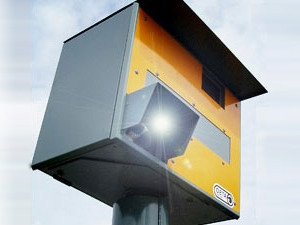
The Road Traffic Infringement Agency (RTIA) is gearing up to have the traffic demerit system ready across the country during the second half of the year.
The controversial system - the Administrative Adjudication of Road Offences (Aarto) Act - is already running on a trial basis in Johannesburg and Tshwane. Its implementation has been several years in the making, but the RTIA says it will be ready in the second half of 2014, and then government just has to set a date.
However, the rollout could come too late for Total Client Services (TCS), which had been eagerly awaiting its implementation as its business was geared to provide services under the law. Last November, it filed for business rescue.
In a statement, it said it was "financially distressed", because 2 450 shares, issued to Mvelaphanda Holdings, had to be redeemed. The news sent its stock into freefall, wiping 50% off the share price, which closed at 1c, a level the stock stayed at as the group has voluntarily been suspended from the bourse.
RTIA COO Thabo Tsholetsane tells ITWeb the agency is busy dealing with issues that could affect the national rollout and is correcting these. Among the aspects that have to be resolved is a clean-up of the database used to send out fines, he says.
Sorting out
The DA has argued that Aarto - in pilot since 2008 - is an abysmal failure and will not succeed if rolled out nationwide due to low payment levels, which it says is because the database it uses to send out fines is polluted.
Tsholetsane says the agency is tidying up the database - the Electronic National Traffic Information System (eNatis) - as some details have been captured incorrectly, while others have to be updated by motorists.
According to documents leaked by the Democratic Alliance (DA) last year, only 5% of all fines issued under Aarto are paid. The documents, which the DA says came from within the Department of Transport, show R2 billion is outstanding in infringements over the past two years.
The DA has said fines under Aarto are issued using data on the polluted Electronic National Traffic Information System (eNatis), which the South African National Roads Agency (Sanral) uses to send out e-toll invoices.
However, Tsholetsane points out between 80% and 90% of people receive renewals for vehicle licences, even if they have to collect post from where they previously lived. He says this practice is not repeated when it comes to fines.
The RTIA has said the non-payment of traffic fines among traffic infringers is not new.
"National payment rates for traffic fines over the past 20 years fluctuated between 10% up to about 40% at times. The root cause for the ultra-low payment rates is the culture among road traffic infringers of 'not paying'."
It says this tendency was carried over to Aarto, although the law does allow for recovery of all outstanding fines. In terms of Aarto, a courtesy letter is sent 32 days after the first fine notice was served, which is then followed by an enforcement order.
Finding a solution?
Tsholetsane says legislation also has to be changed to allow fines to be sent out through means other than registered mail, as this system "costs a fortune" and will cripple municipalities.
The DA's documents show it costs R27.5 million to send out courtesy letters and enforcement orders to law-breakers in Tshwane and Johannesburg. However, the agency's budget per year is only R25 million.
The leaked reports indicate "serving of documents by registered mail is not sustainable and cannot be afforded". Should Aarto be rolled out nationwide, this cost will leap to R65.3 million.
The agency has been mooting ordinary post and e-mail as a more cost-effective solution. However, the current Act will have to be amended to make this possible, a process that is under way.
Those opposed to the changes have argued they will remove the ability to prove an offence has arrived at the right address.
Cities across SA are being audited to determine whether they are ready, adds Tsholetsane.
Share